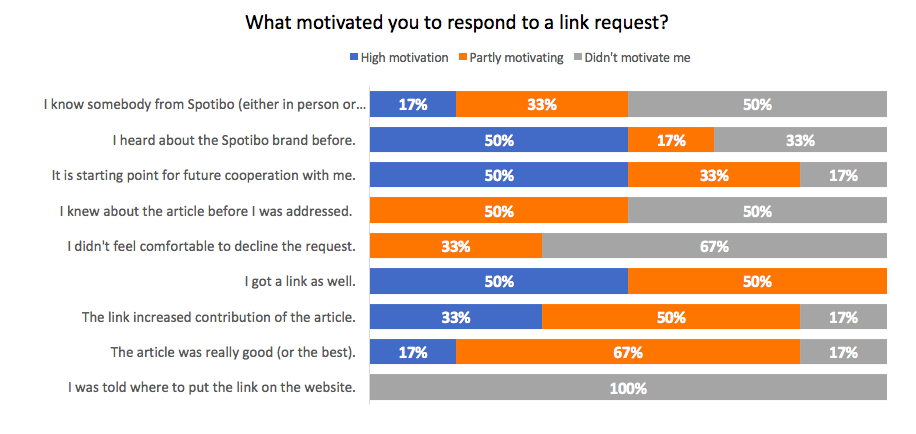At conferences, I am quite used to taking notes. Sometimes I even edit and publish them, to share the valuable information that I have learned. It is simple and extremely effective because:
- It takes little time, and it can be done on the train or at the hotel.
- It lets my clients see that I am constantly educating myself.
- I usually get some helpful feedback.
- I can take these new ideas and begin to apply them in all sorts of ways.
I’ve been thinking for a long time that I would like to test live blogging as well. It’s almost the same as writing and later publishing those notes, except that it is published right away (live) while I am still actually at the conference. A piece of cake. I also thought about these additional benefits:
- We will receive attention during the conference, especially from participants who will utilize the information that we provide.
- Whoever publishes the information first has an advantage. Some of these benefits can include more sharing, more likes, and more retweets.
But I wanted to test it especially as to how it applies to link building. Content that gets lots of links is usually:
- The best in the particular topic. If we are the only blog that is going live, then no other blog will be better. We just have to make sure that the content is the best, even after the conference is over.
- It gets to the linkerati, which is the community that makes the links. And the conferences are usually full of them – bloggers, business owners, discussion lovers and others.
- You-just-want-to-link-to-it. Content that people just have to link to is typically so good or so bad that they need to express their opinion immediately.
- Egobaiting. Writing about lectures, publishing the best tweets and evaluating the conference is an ideal way to lift the egos of lots of people simultaneously.
- Actively supported. Many people write about a good conference. These writers should know about our live blogging, giving them a reason to add a link.
These were the goals of our first live blogging session. Except for “you-just-want-to-link-to-it” content, at that moment, I became aware that it wouldn’t be quite that easy.
This is how we proceeded
- Before starting the SEO Restart conference, we wrote a blog post announcing that we would be live blogging and posted this article on Twitter with a conference hashtag (#seorestart).
- Our team discussed how we would share tasks and communicate with participants (especially on Twitter).
- The evening before the conference, we installed the 24liveblog platform (for free), and we began the process of trying to figure out how to use it.
- During the conference, we published notes like crazy.
- The day after the conference, we formatted all of the notes in a large article (in Slovak language).
- We monitored who else wrote about the conference, and we published links to their articles (if they included valuable information). We would then ask for a link to our article.
The whole process was based primarily on improvisation. Therefore, we made a lot of mistakes along the way.
We will be much more prepared the next time
Here are a few things that we learned:
- It is necessary to have a good quality smartphone for photos. Our photos were often blurry or pixelated.
- It is important to sit as close as possible to the slides. Sometimes we couldn’t capture the slide properly.
- It is worth keeping in mind that the Wi-Fi may not always be optimal, so it is better to have enough internet data available on your smartphone. Luckily, we had it.
- Using a computer for writing is much faster than using a phone. If there is available seating with a table, it is important to get it. We tried to put our computer on our knees, but it becomes hot, and it was not comfortable at all.
- Watching the battery on both the mobile and the laptop is fundamental. Ideally, try to sit next to a wall outlet so you can charge it. In our case, we were very satisfied with the performance of our Mac, which kept running all day without needing to charge.
- It is better to do live blogging with at least two people. However, a third writer wouldn’t hurt. We also ran into the situation where both of us published the same thing. So the next time, we will put one person in charge, with the others assisting, capturing thoughts and taking photos of important slides before they disappear. Someone must also be in charge of editing.
- One person should take care of all social networks. It is important to keep track of social activity, contribute and communicate with others. We did one more promo campaign during this time on Twitter, but we did not manage to make the best of it at all. A third person could be very helpful here.
- It is good to consider live blogging between lectures as well. We didn’t take any photos of food or post information behind the scenes. But that didn’t matter to us that time, because we needed to take some time to relax and enjoy ourselves.
How much content we produced
The goal was to create the best content. The results of our effort was:
- 144 messages with SEO tips live on the blog,
- 12 detailed descriptions of lectures, including photos and slides, along with questions and answers at the end of lecture,
- 18 pages of notes,
- 58 links to other resources and articles about SEO restart.
The success of our requests to get links
Only Medio.cz, which was the organizer of the conference, linked to us on their own. Nobody else linked to us without our explicit request. I was rather disappointed to discover this.
Subsequently, we addressed 11 authors who wrote about SEO Restart and asked for the link. We found that 10 out of 11 were willing to give us a link without hesitation. This lifted my spirits, because this successful rate is unusual (= it never happened to me before).
So, if we didn’t do proper link building outreach, we wouldn’t have received anything out of it. Even though we created the best content, it wouldn’t be worth it without the correct distribution.
What motivates people to respond to a link request
I have several hypotheses of why the outreach was so successful. But the presumptions are just presumptions. And so we asked each of the ten portals what motivated them to link to us. Six of them answered, and here are the results:
Half of them were very motivated by knowing us or our brand.
Half of them were also motivated by the fact that such a kindness could come back to them in further cooperation.
You can see how important it is to be known before somebody will link to you. On the other hand, personal acquaintance is not essential (although half of the respondents were also motivated by it).
Besides, it is a huge motivator that we have already done some kind of favor for them, which is, in this case, that we linked to them. Reciprocity has motivated everyone. Check out an article by Matt Gratt about reciprocity in link building, or read the book Influence: The Psychology of Persuasion.
We have also confirmed the importance of the quality of the content because almost everyone believed (33% with high motivation) that the link will increase the contribution of their article. The quality of the article was also a motivator for everybody except one.
What we got out of it
Let’s talk about the numbers:
- On the day of the conference, an article had 280 visits. The participants of the conference totaled about 180. Since we were targeting a very narrow group (SEO specialists), I find this number very satisfying.
- During the first week of publishing the article, we received 925 visits.
- Since its publication (about three months later), the article received more than 4,000 visits in total.
- There were 12 websites, like well-known SEO agencies (H1.cz, Medio or Dobryweb), who linked to us.
- Promotional costs were € 0.
- Time spent:
- We used one day of work during the conference (we would have spent it anyway).
- It took less than one day to add additional content to the article afterward.
- It took 4 – 5 hours to contact the websites and get links.
Creating the best content, referring to others and asking for links has really worked well for us. We confirmed that live blogging is the ideal method to get more out of the conference.
Note: This article was translated from the Slovak original.




